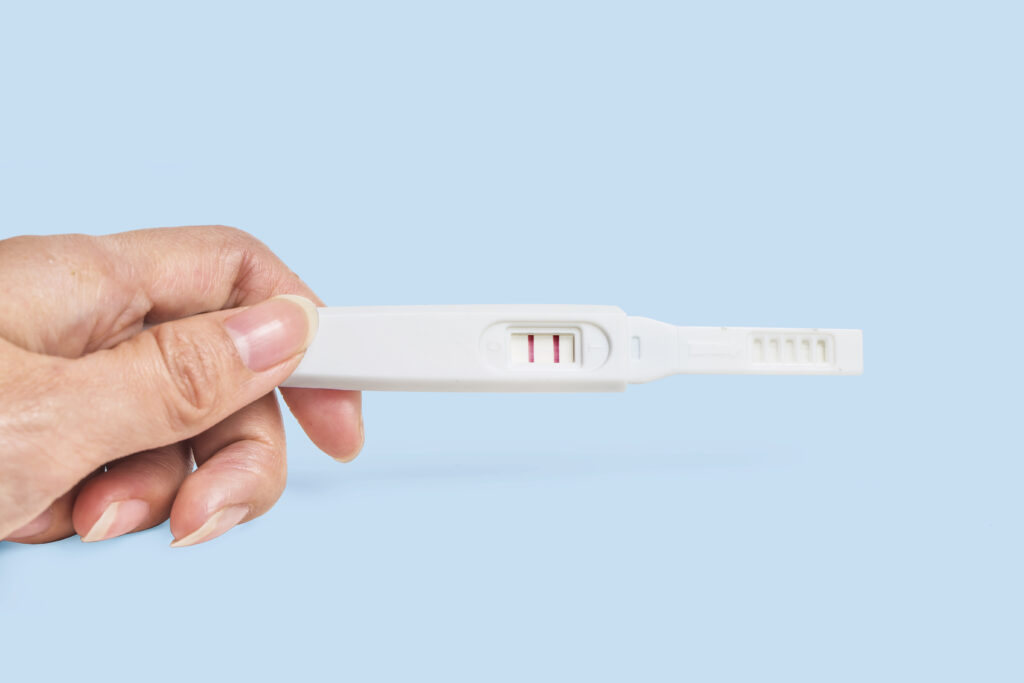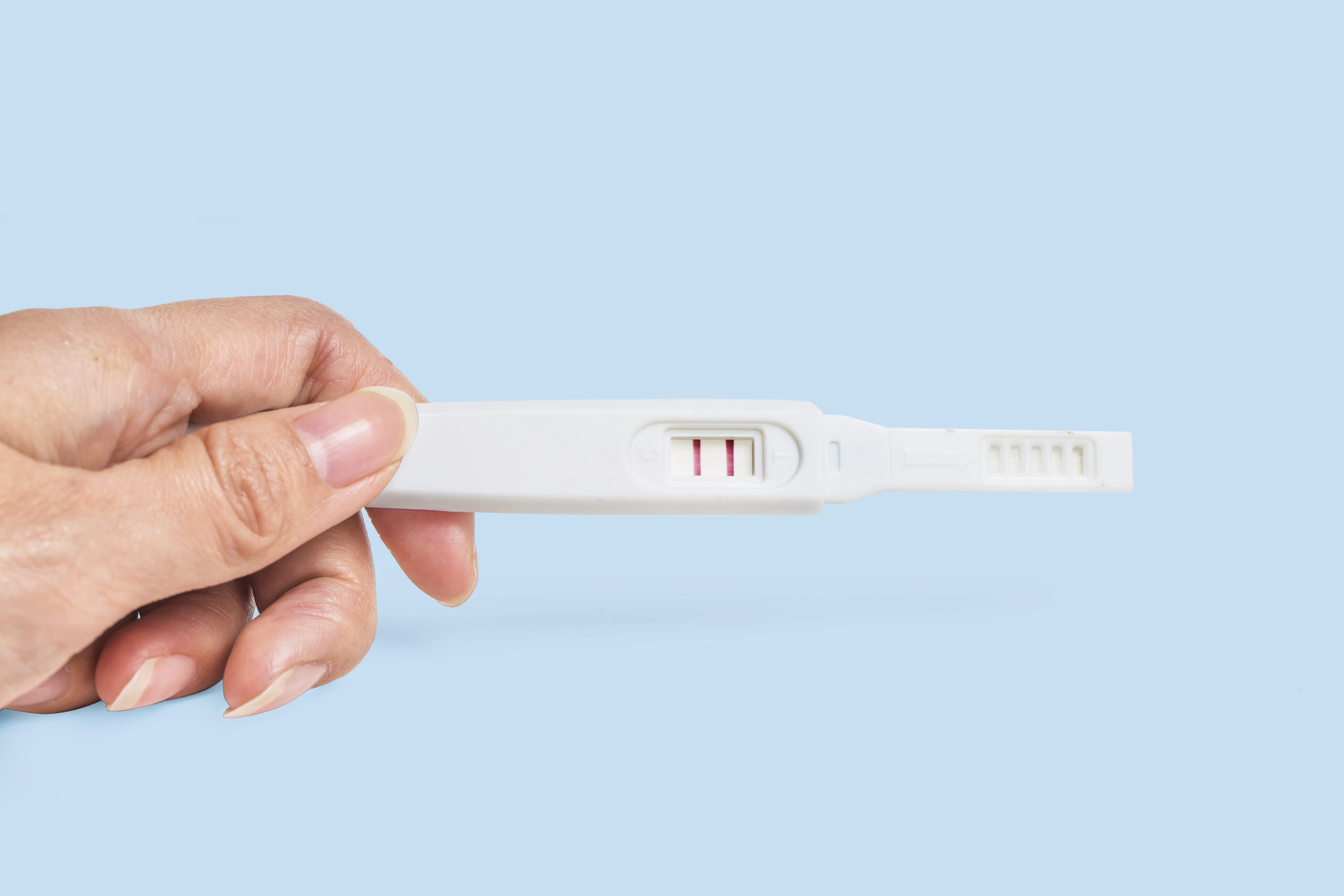Wondering when to take a pregnancy test for accurate results? Learn the best time for early detection, when pregnancy symptoms start, and how to ensure reliable outcomes.
Pregnancy is an exciting and often anxious time for those trying to conceive, and one of the most common questions is, « How soon can I take a pregnancy test? » While home pregnancy tests offer a quick and convenient way to find out if you’re pregnant, getting accurate results depends largely on timing. This article delves into when you can take a pregnancy test for the most reliable outcome and offers insights into early testing options.

What Is a Pregnancy Test?
Before diving into the details of timing, it’s important to understand how a pregnancy test works. Home pregnancy tests detect the presence of human chorionic gonadotropin (hCG), a hormone produced by the placenta shortly after a fertilized egg attaches to the lining of the uterus. The levels of hCG increase rapidly in early pregnancy, and most home tests are designed to pick up this hormone in your urine.
For more insights into pregnancy testing, you can visit our category here: Pregnancy Testing.
How Soon After Conception Can You Take a Test?
The general rule of thumb is that you should wait until the first day of your missed period to take a pregnancy test. For many women, this is about two weeks after ovulation or conception. However, thanks to advancements in home pregnancy test technology, there are now « early response » tests available that claim to detect pregnancy hormones several days before your missed period.
Here are some guidelines based on different time frames after conception:
1. 7-10 Days After Conception (Implantation)
After conception, it takes about 7-10 days for the fertilized egg to implant in the uterus, which is when your body begins producing hCG. Testing too early (before implantation) will almost always give you a negative result since there won’t be any hCG in your urine yet.
2. 10-14 Days After Conception
This is when the hCG levels start to rise significantly, making it possible for a home pregnancy test to detect pregnancy. Some early detection tests claim to be able to detect hCG levels as early as 10 days after conception, but for the most accurate result, it’s better to wait until your missed period.
When to Take a Home Pregnancy Test?
Here’s a breakdown of when to take the test based on your circumstances:
1. If You Know Your Ovulation Date
If you track your ovulation with methods like ovulation predictor kits or basal body temperature monitoring, you can take a pregnancy test around 10-14 days after ovulation. This period is when implantation occurs, and hCG levels begin to rise.
2. If You Have a Regular Cycle
For women with a regular menstrual cycle (around 28-30 days), the best time to take a pregnancy test is one day after your missed period. By this time, the hCG levels should be high enough for most home tests to detect.
3. If You Have an Irregular Cycle
If your cycle is irregular, it may be more challenging to pinpoint the best time to take a pregnancy test. To improve accuracy, it’s advisable to wait at least 21 days after unprotected intercourse before taking a test. You can also track symptoms like nausea, fatigue, and breast tenderness to gauge if you should test earlier.
For more information on pregnancy symptoms, check out Pregnancy Symptoms.
Early Detection Tests: Are They Accurate?
Many women are eager to know if they’re pregnant as soon as possible, so early detection tests are appealing. These tests can sometimes detect pregnancy hormones up to 5-6 days before your missed period. However, the closer you are to your expected period, the more accurate the results.
Early Response Tests:
- Up to 6 days before your missed period: Some early tests can detect hCG levels, but accuracy is only about 50-60%.
- 1-2 days before your missed period: The accuracy increases, with some tests reaching 85-90% reliability.
- On the day of your missed period or after: Most tests are over 99% accurate by this point.
How Long After Unprotected Intercourse Can You Take a Test?
If you’re not tracking ovulation, and you’ve had unprotected intercourse, it’s generally best to wait at least 14 days before taking a pregnancy test. This is because it takes time for the egg to be fertilized, implant, and start producing detectable levels of hCG. Testing too early might give you a false negative.
What Factors Can Affect the Accuracy of a Pregnancy Test?
Several factors can influence the accuracy of a home pregnancy test:
1. Testing Too Early
Testing before hCG has had time to build up in your system is the most common reason for a false negative. Even with early detection tests, it’s always more reliable to wait until after you’ve missed your period.
2. Testing at the Wrong Time of Day
The concentration of hCG is highest in your first-morning urine. Testing later in the day, especially if you’ve consumed a lot of fluids, can dilute your urine and reduce the test’s sensitivity.
3. Expired Tests
Always check the expiration date on your pregnancy test. An expired test may not work correctly, leading to inaccurate results.
4. Medications
Certain medications, such as fertility treatments that contain hCG, can cause a false positive. It’s important to consult your doctor if you’re undergoing fertility treatment and are unsure when to test.
When Should You Consult a Doctor?
If you take a home pregnancy test and get a positive result, it’s time to schedule an appointment with your healthcare provider to confirm the pregnancy through a blood test and begin prenatal care.
However, if your test is negative and your period still doesn’t arrive after a week, retest or consult your doctor. Some women may have lower levels of hCG that take longer to rise.
For more postpartum-related information, you can explore our section on Postpartum.
Summary of Key Points:
- The best time to take a pregnancy test is after your missed period.
- Early detection tests can work up to 5-6 days before your missed period, but their accuracy improves the closer you get to the missed period date.
- Test with your first-morning urine for the most accurate results.
- If you have irregular cycles, wait at least 21 days after unprotected intercourse before testing.
- If you get a positive result, follow up with your healthcare provider.
Conclusion: Patience Is Key for Accurate Results
While the temptation to test early is understandable, waiting until after your missed period provides the most accurate results. Early detection tests can be helpful, but always remember that the farther along you are, the more reliable the test will be.
For any concerns about early symptoms or testing, consult with your healthcare provider, and don’t hesitate to retest if needed. Understanding the timing of pregnancy testing will help you navigate this exciting time with more clarity and confidence.
This article provides a detailed explanation of when to take a pregnancy test, focusing on accuracy, and links readers to other relevant sections like pregnancy symptoms, pregnancy testing, and postpartum for further reading.
Internal Links:
- Pregnancy Symptoms: Pregnancy Symptoms & Signs
- Pregnancy Testing: Pregnancy Testing Guide
- Postpartum: Postpartum Care
External Links :
- For early pregnancy information: Early Pregnancy
- For pregnancy test details: Pregnancy Test
